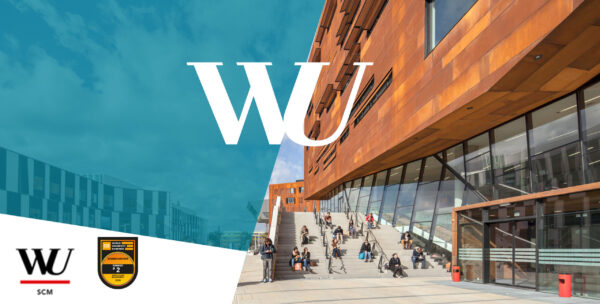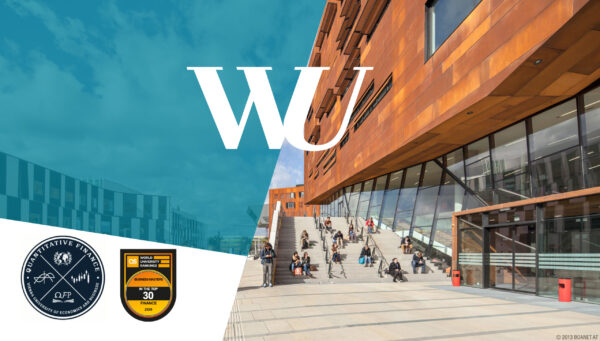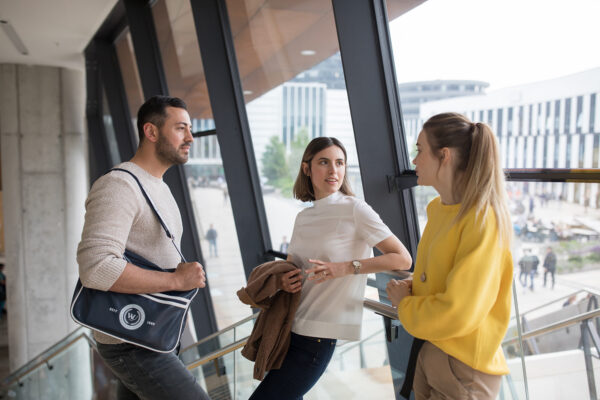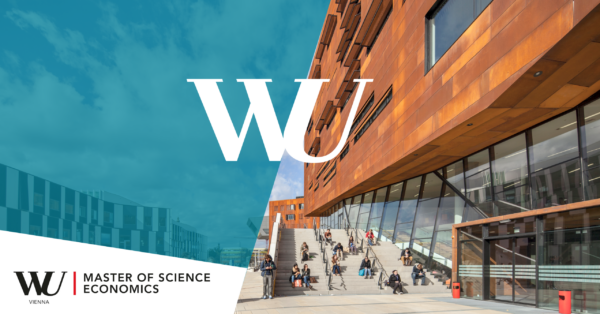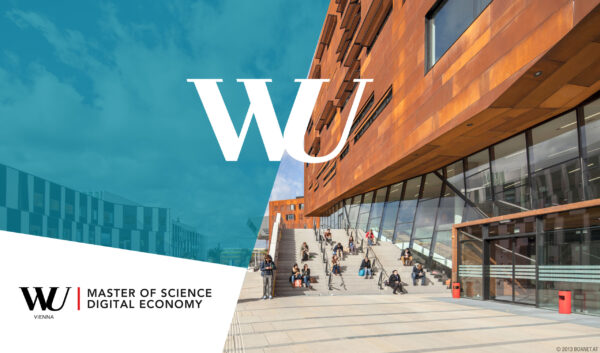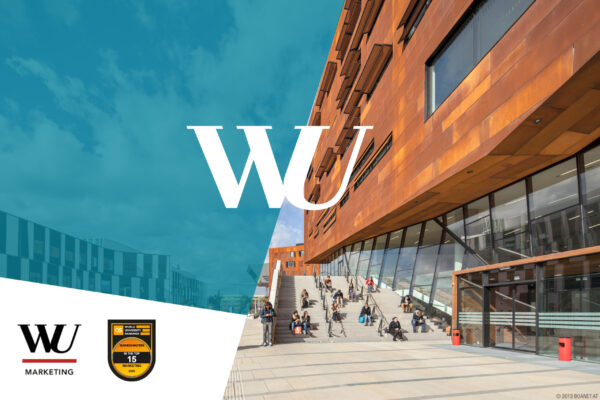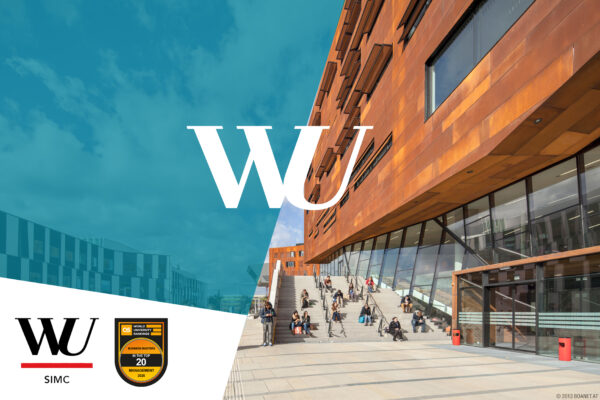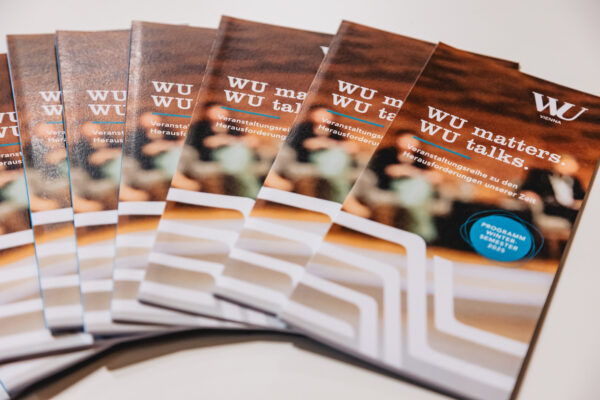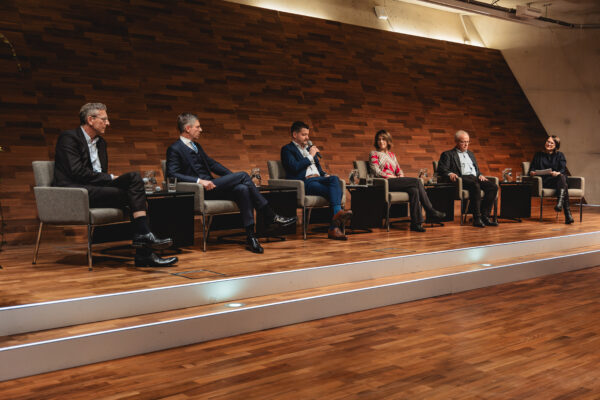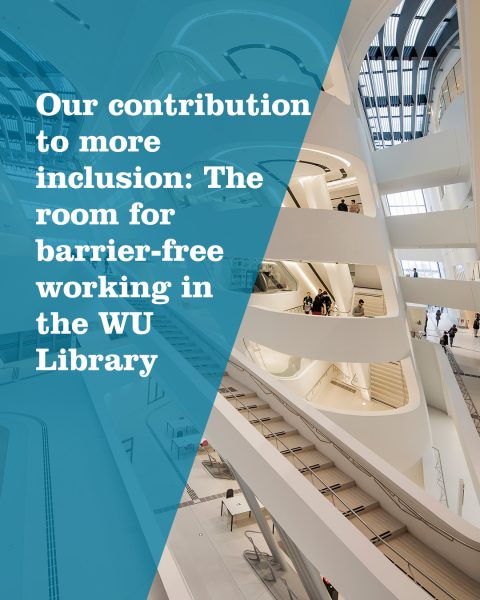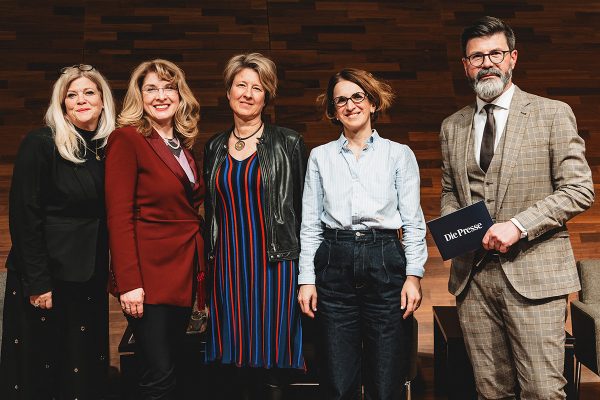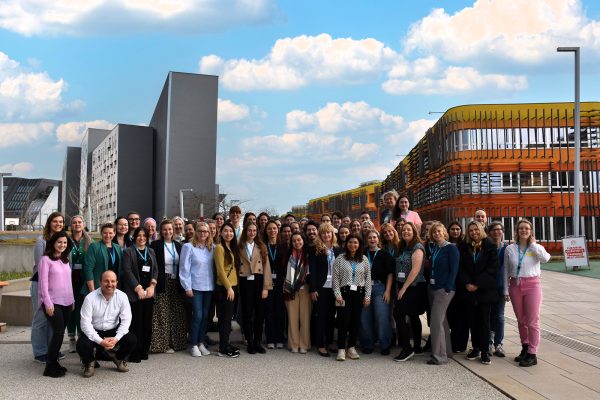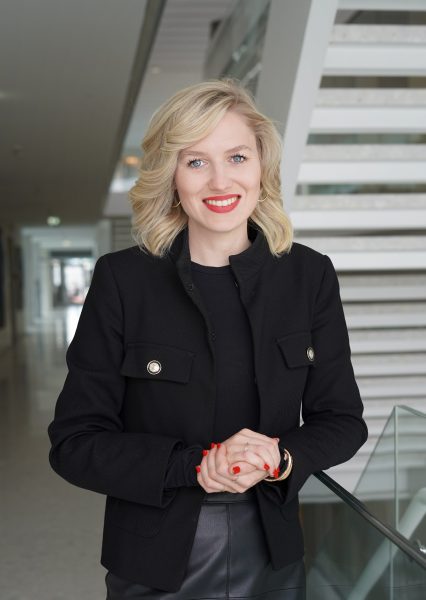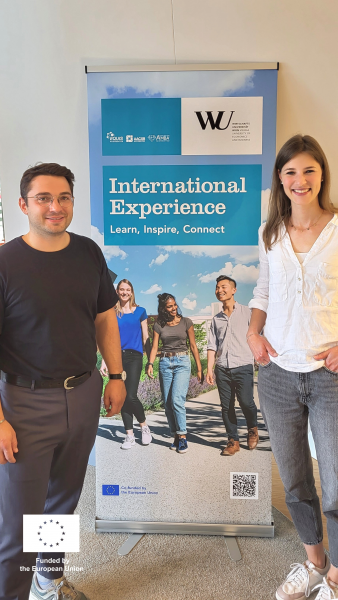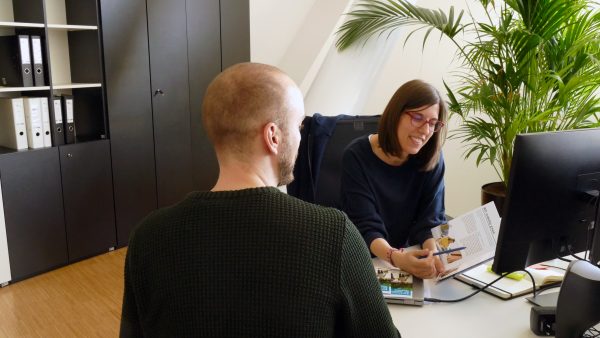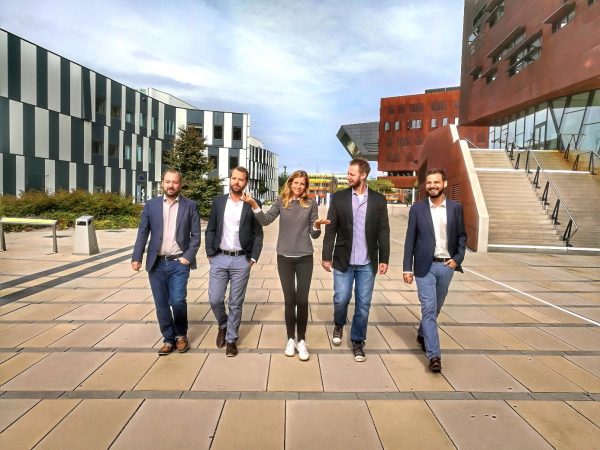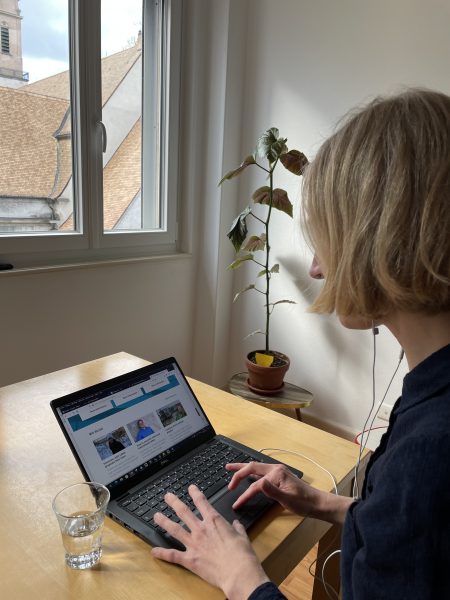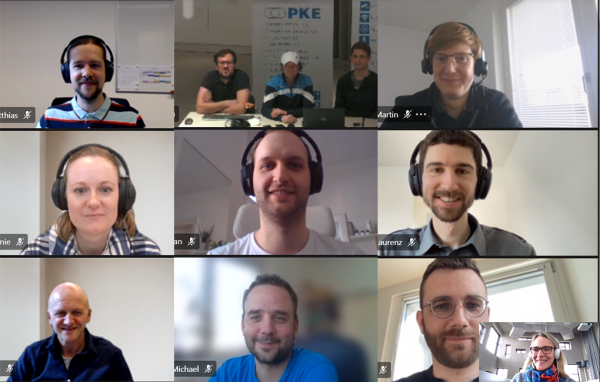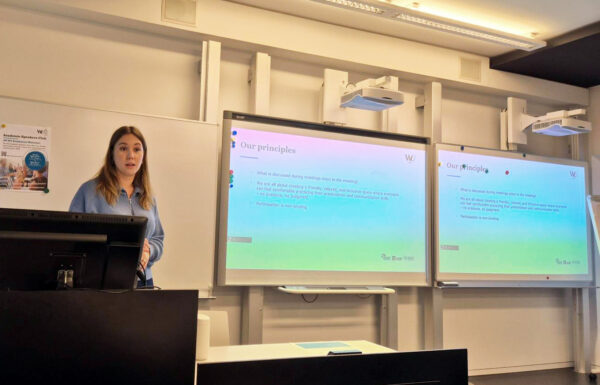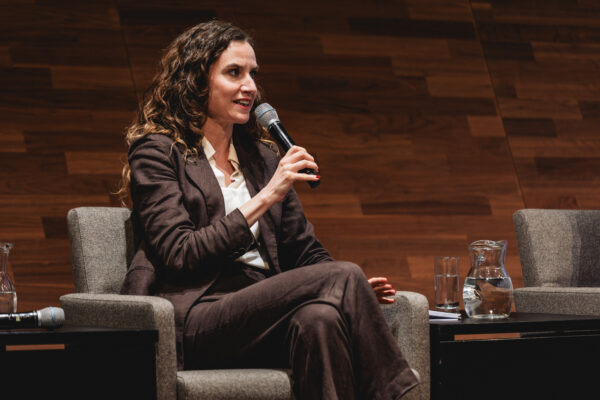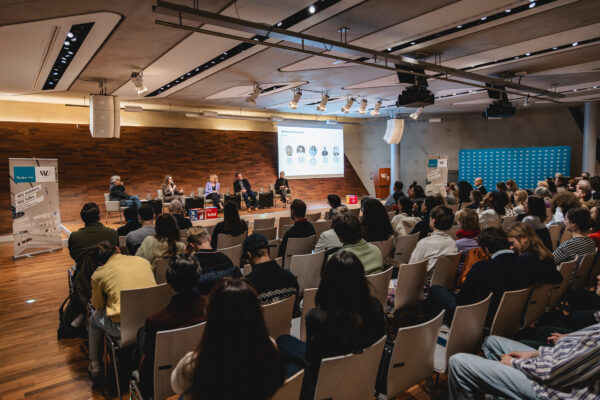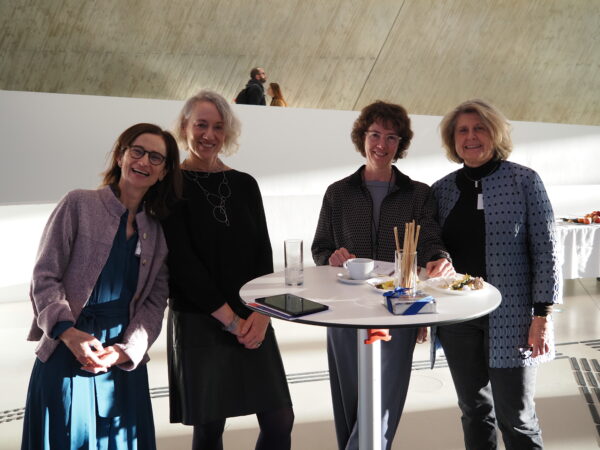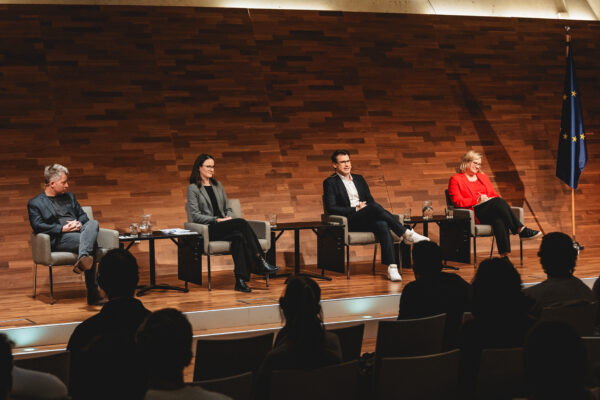Mythbusting Migration
On November 19, 2025, the debate on migration took center stage at “WU matters. WU talks.” Following a keynote speech by Milda Žilinskaitė (WU), panelists Jesús Crespo Cuaresma (WU), Jason Gagnon (Global Migration Data Analysis Centre), Aida Hajro (University of Leeds), and Judith Kohlenberger (WU) shed light on the public debate and on the background of migration.
Public debates vs. empirical evidence
Vice-Rector Margarethe Rammerstorfer opened the event by highlighting the newly established Research Institute for Refugee and Migration Research and Management (FORM). Milda Žilinskaitė began her talk by noting that all panelists had personal experience with migration. She emphasized the close link between migration, social development, and economic change, quoting Ronald Skeldon: “Migration is development.”
Aida Hajro illustrated how stereotypical representations, including AI-generated images, strongly shape public discourse. Judith Kohlenberger warned, “There is a growing gap between empirical data on migration and the public debate.” Public attention tends to focus primarily on irregular and forced forms of mobility. Hajro cited empirical data: Only about 3.7% of the world’s population are international migrants, and just 0.5% are refugees. She also reminded the audience, “We Europeans often forget that not so long ago we were the main regions sending people abroad; we colonized.”
Why people migrate
A common misconception is that migration is driven primarily by the poorest. In reality, those with the least resources often lack the capital to move. Jason Gagnon emphasized:
“The poorest people of the poor countries almost never cross borders.“
Migration tends to increase with rising prosperity and if people have networks abroad. Hajro also highlighted the role of multinational enterprises in facilitating labor mobility. Environmental and climate change factors play a role too. Crespo Cuaresma noted the complexity of assessing the effects of climate change on migration: While climate shocks can drive migration in agriculture-dependent regions, people often stay due to a lack of resources.
Migration and the economy: Competition for talent
While some political debates frame migration as a burden, there is intense global competition for skilled labor. “Countries in South and Southeast Asia are investing heavily in training digital professionals,” Gagnon explained. Kohlenberger pointed out that in Austria, the Economic Chamber and the Chamber of Labor had long taken a cautious stance on migration, partly due to concerns about wage dumping. This view, however, is gradually changing. Her conclusion:
“The global competition for talent is ongoing.”
Crespo Cuaresma added that mobility also drives innovation.
Outlook and options for policy action
Kohlenberger highlighted the importance of legal migration channels and easier access to citizenship. Crespo Cuaresma stressed that while no “one-size-fits-all policy advice” exists, there are numerous “low-hanging fruits,” such as targeted investments in education for migrants. He concluded by underscoring the role of researchers in public discourse:
“It is our responsibility as scientists to provide facts in a detailed, nuanced, and understandable way for political debates.”
Watch the entire discussion:
Want to join the discussion?
“WU matters. WU talks.” is our series of panel discussions and public lectures where researchers and experts from leading businesses and institutions share valuable insights and discuss current topics with the interested public. Sign up here for our newsletter so you don’t miss our next expert discussions on the hot topics of our time!
